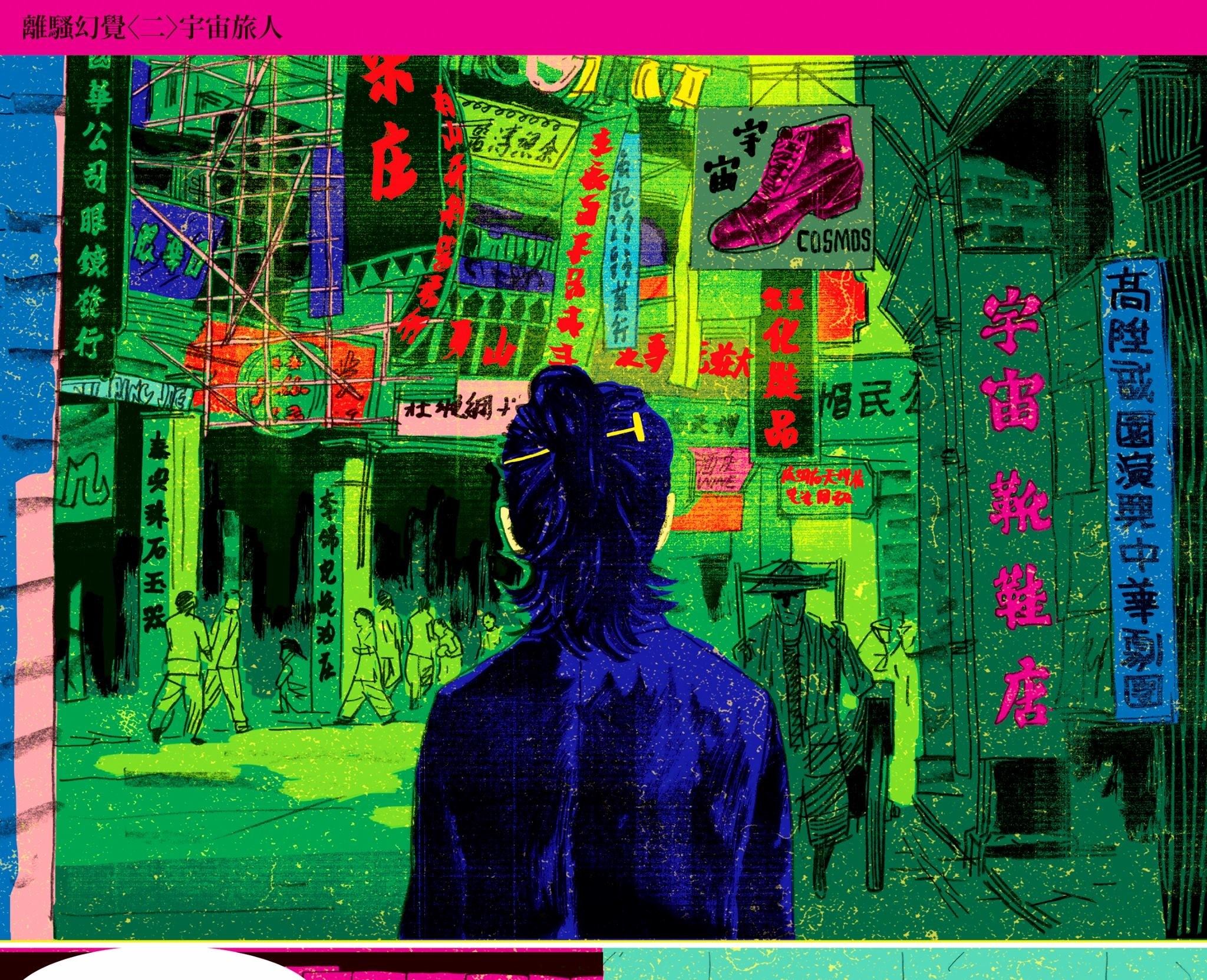Kongkee’s Dragon’s Delusion and Translation Beyond Dualisms

Though printed all but monolingually in Chinese, Dragon’s Delusion 离骚幻觉, a graphic novel by Malaysian-born, Hong Kong-raised, London-based artist/animator Kongkee 江記 (Kong Khong-chang 江康泉, b. 1977) represents translation in an array of variations.
The premise of Dragon’s Delusion sees bronze-age poet Qu Yuan 屈原 (c. 339–278 b.c.e) reborn in a postapocalyptic cyberpunk state of Chu 楚, drawn conspicuously like Hong Kong, after it has been subsumed by Qin Shihuang’s 秦始皇 (259–210) Qin秦. In this cyberpunk Chu–Hong Kong, Qu Yuan, now an android, experiences the dualisms of death and (after)life, body and soul, human and android, all while struggling with the “implanted memories from his past life” (Kongkee 江記 2023). What happens, then, when original and translation, past and future, human and transhuman, Chinese classicism and Sinophone cyberpunk creativity collide?
This seminar will proceed in two parts. First, I will read Dragon’s Delusion to look at what the Chinese cultural roots of Qu Yuan can mean in the Hong Kong context. I aim to show how Kongkee’s Qu Yuan represents a departure from but inability to say goodbye to Chinese cultural and political identity, as represented in the simultaneous decanonization/recanonization at work in this intersemiotic translation. Then I will read the dualisms at work in Dragon’s Delusion in terms set by Donna Haraway’s Cyborg Manifesto, for how it might “suggest a way out of the maze of dualisms” (Haraway 2016, 67) that have been “systemic to the … domination of all constituted as others” (59). In short, in his effort to encounter and depart from Chinese tradition at the same time, Kongkee performs a recodification of Sinophone cultural identity, deconstructing dualities so that it can stand as a transhuman-like extension and transformation of Chinese cultural legacy into a post-diasporic and re-territorialized rebirth, whereby roots and routes sublimate into individual creativity. Particular attention will be paid to the analysis of Qu Yuan via the work’s deployment of transmediality, transplantation, and translation.
Lucas Klein (PhD Yale) is a father, writer, translator, and associate professor of Chinese at Arizona State University. Associate editor of the Hsu-Tang Library of Classical Chinese Literature (Oxford), he is author of The Organization of Distance (Brill, 2018), co-editor of Chinese Poetry and Translation (Amsterdam, 2019) and the Bloomsbury Handbook of Modern Chinese Literature in Translation (2023), and translator of Mang Ke (Zephyr, 2018), Li Shangyin (NYRB, 2018), Duo Duo (Yale, 2021), Xi Chuan (New Directions, 2012, 2022), and Yu Xuanji (Oxford, 2024).














/enri-thumbnails/careeropportunities1f0caf1c-a12d-479c-be7c-3c04e085c617.tmb-mega-menu.jpg?Culture=en&sfvrsn=d7261e3b_1)

/cradle-thumbnails/research-capabilities1516d0ba63aa44f0b4ee77a8c05263b2.tmb-mega-menu.jpg?Culture=en&sfvrsn=1bc94f8_1)
